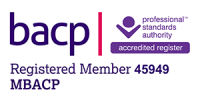
Are you concerned that you’re not getting the most from your counselling experience? If so, you’re not alone. Counsellling is an investment of both your time and your money, and it makes sense that you want to see as much benefit as possible. In this article, I’ll talk about things you can do to help you get the most from your therapy.
View therapy as self exploration, not a test!
Many clients tell me they worry they’re not doing therapy right, or that they should be making faster, greater, clearer progress. Others fret that they are talking about the wrong things or feel frustrated, thinking they are stuck. Some imagine they are being a ‘bad’ client, wasting my time when I could be giving it to a ‘good’ client who knows the right things to talk about and makes clear progress from week to week.
If any of that sounds familiar, let me reassure you. There is no right or wrong way to do counselling or therapy. If you find the right therapist, they will be able to work with whatever you bring, and however you bring it! A good therapist also knows that progress in counselling takes time and never happens in a straight line, so they will probably be in less of a rush than you are!
So my first suggestion is to go easy on yourself and don’t hold yourself to unrealistic expectations. It’s totally normal to have periods where progress is slow. As integrative psychotherapist Ben Brackenbury points out, “Struggling after making progress does not mean you’re back at square one. It just means you’ve hit a perfectly normal slower patch. Stick with your counselling sessions and it will pass with time.” And remember, just because you’re not conscious of progress at the moment, it doesn’t mean it isn’t happening. Often clients will tell me that something has shifted in their mental health without them noticing it happening at the time.
All that said, there are some things you can do to make the most of your counselling sessions, whether you opt for face-to-face or online therapy. Some are to do with the therapy sessions themselves; others you can do between sessions. Try them out and see which you find helpful.
Reflect on your therapy sessions
Therapy doesn’t just happen when you’re in the room with your therapist; it continues between sessions. It can be all too easy to switch on your phone as you leave the counselling room, get back into daily life and not give your mental health another minute’s attention until the next session comes around. Some therapists give homework assignments; others prefer not to give specific assignments and leave it to clients to work on their self awareness in whatever way they find most helpful between sessions. Try to make time in your week for focused reflection on what you and your therapist have talked about, and whether anything remains unresolved for you. You may want to take notes or work on your own self exploration in a journal.
Barbara Perini, a psychodynamic therapist working at One Therapy London, suggests taking some time before and especially after each session. “Even just going for a short walk after the session will allow things discussed to settle down before getting back to busy lives.”
Notice what affects your mental health during the week and bring it to counselling
If you have a strong emotional reaction to something, it’s worth discussing it with your therapist. All too often we dismiss these incidents as ‘something silly’ or an overreaction, but the fact you reacted means there’s something important in there for you. The right therapist will help you to unpick why it affected you so. When I say a ‘strong emotional reaction’, that’s relative! Some people struggle to feel their emotions. If that’s true for you, then not-so-strong emotional reactions are worth bringing too!
Think about what would be helpful to discuss in your next appointment
Therapy is a space for you to talk about what’s important to you. Don’t expect the therapist to set the agenda. As I discussed in What do I talk about in counselling? there is no right or wrong topic. Some clients pick up where they left off last therapy session, others switch topics more. Some discuss what’s happened to them that week; others focus on the past. It all works, so long as you’re talking about what matters to you.
Ask yourself if you’re avoiding issues
It’s worth taking some time between sessions to ask yourself if there are topics you are keeping out of the therapy room and why. Sometimes clients avoid topics for fear of being judged. Try to remember that your counsellor has heard a lot, isn’t easily shocked and is trained to be non-judgmental. You may find that if you discuss your fear of judgement with them, they will be able to ease your concerns.
Take time on your therapy journey
This may sound like I’m contradicting my previous point, but it’s important to know that if you don’t want to talk about something, that’s absolutely fine too. Therapy needs to happen at your pace and your mental health may be compromised if you go too far too fast. So encourage yourself to open up if that feels doable, but if it feels too much then give yourself time. At One Therapy London, we offer open-ended therapy. That means there is no end date set, so there’s no rush. Take all the time you need to feel comfortable and build trust in the therapeutic relationship. It might take months or years and that’s okay. Your counsellor will be used to that pace and won’t rush you.
Track your progress
This one isn’t so much about getting more out of your therapy, but it helps you to see the real progress that you are making. Write down your thoughts and feelings when you start therapy. Then periodically refer back to that and update it with where you are now. You may be surprised to see how much your thought patterns and emotions have changed. And if that helps you to stay engaged in the therapy process at times when you might otherwise consider ending, then I guess it does help you to get more out of it.
Bring the good, the bad and the ugly!
Psychodynamic therapist Rhiannon Whipps sums this one up well when she says, “My advice for clients to get the most out of therapy is to be honest and open with what they are feeling both inside and outside of our sessions – bring it all! Your therapist really is interested in what you feel and the extent to which you feel it – the good, the bad, the irrational, the ugly, the worries and the daydreams. Our role is to make sense of it all with you.” Therapy really is a safe space where you can bring all those difficult emotions and thoughts you might feel ashamed to raise elsewhere. We all have them and you won’t be judged for them.
Bring your thoughts and your feelings
When you’re bringing your good, bad and ugly, pay attention to both your thoughts and your feelings. Sometimes we use those words interchangeably, but they are different and the difference is important. By feelings, we mean emotions like fear, excitement, anger and sadness. In counselling, where we may be looking at painful material, it can be tempting to leave our emotions out of it and stick to the (less painful) thoughts. The problem with that is that we can’t process events fully unless we engage with our emotions. If you are more comfortable sharing your thoughts, try to tune in to your emotions more often, both inside and outside the therapy room. If that’s tricky, your counsellor will be able to help you.
Expect therapy to take time
I’ve touched on this already, but it’s worth restating. Therapy isn’t a quick fix. It’s a deep fix, and that takes time. The issues we’re working with have usually built up over years or decades, so they’re not going to be undone in weeks. Clients sometimes arrive at therapy with an idea that they need six or twelve sessions, often because that’s what their GP has prescribed. Unfortunately that reflects the limited resources of the NHS more than the reality of how long therapy takes. Expect to spend your first few sessions just telling your story, and don’t worry if it feels like you’re only scratching the surface – the right therapist will take their time to fully understand the real you. Try to focus on the journey, not the endpoint – therapy doesn’t work well if you’ve got one foot out of the door.
Be collaborative and curious
Counselling happens between the therapist and the client. What I mean by that is that it’s not the therapist’s job to find solutions to your problems, nor yours to do all the work with the therapist as a mere observer. It’s a relationship in which both of you explore what’s going on for you to give you a deeper understanding of your inner world and how you might change things. That requires you to be curious about yourself, open to exploration and willing to go where therapy takes you. Rhiannon Whipps says, “Curiosity is an essential part of any therapeutic work. Remaining curious about yourself, your thoughts, feelings, past experiences and the therapeutic process itself allows for deeper exploration into the things that make you you.”
Talk about the tough times
There will likely be times when you don’t feel like coming to your therapy sessions. Maybe you didn’t like something your counsellor said in your last session. Maybe you’re thinking about ending therapy sessions but don’t want to have to tell your counsellor that. Maybe last week you walked out of the therapy room feeling worse than you did when you walked in, and you don’t want to go back to that painful place.
The important thing to do in these tough times is to show up and talk to your counsellor about how you’re finding it tough. That can feel really daunting to do, particularly if it’s them you’re upset with, but it is also one of the most valuable things you can do in therapy. Many of us avoid confrontation, and therapy is a great place to practise it. Often these conversations open up new avenues for discussion about how you are in relationships. Talking to your therapist about what’s going on for you will likely be empowering and will enable the two of you to explore how you can move forward. Even if you decide it’s time to stop attending sessions, at least you will have done it in an open, honest way.
Return to therapy with the right therapist
If you do decide to end sessions with your counsellor, try with another. Finding the right therapist can be difficult and it’s perfectly acceptable for you to leave treatment with one therapist and continue with a different therapist. Contacting a private practice with many different therapists like One Therapy London is a great way to find the right therapist for you. If in your first therapy session you don’t feel comfortable with the therapist, they can refer you to a colleague who suits you better.
However, pay attention to whether there’s a recurrent pattern being played out by you. Do you often find people lacking and move on? Do you end relationships rather than work through difficulties? If so, explore those themes with your next therapist! Engage in some direct communication about this pattern. This is critical information that will help them to help you to stay engaged with therapy and make positive changes.
Turn up!
The single most important thing you can do to make the most of your counselling is to turn up for each therapy session. That means prioritising therapy in your life. Schedule other appointments and your social life around your counselling. If you regularly move or cancel your session to fit in with other things in your life, the therapy will lose momentum and will be less effective. So choose an appointment time when you can be available each week and, when a clash comes along, choose therapy.


